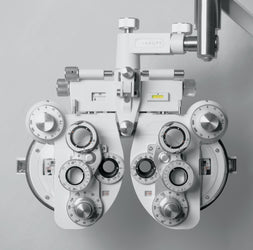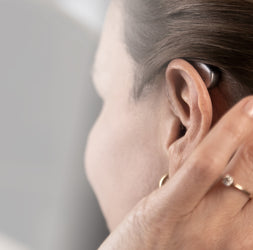Every September, National Eye Health Week reminds us just how important it is to care for our eyes. While most of us keep up with dental check-ups or GP visits, eye exams can slip down the list until something feels wrong. The truth is, regular eye exams matter for everyone—whatever your age, and whether you wear glasses or not.
What Happens in an Eye Test?
An eye exam is quick, gentle, and much more thorough than many people realise. During your appointment, your optometrist will:

|
Check how clearly you see and whether you need glasses or a new prescription. |

|
Look closely at the health of your retina, optic nerve, and blood vessels. |

|
Measure eye pressure to keep a watch for conditions like glaucoma. |

|
Chat through any questions you may have about your eyes or vision. |
It’s all about making sure your eyes are healthy now and in the future.
Clearing Up Common Myths

In fact, many eye conditions develop without any early warning signs. By the time you notice changes, some damage may already have occurred.

Children should have regular eye exams to support learning, confidence, and development. Good vision is key to enjoying school and everyday life.

Why Prevention Matters
Regular eye exams are one of the simplest ways to protect your health and independence. They catch little issues before they become big ones, giving you peace of mind and keeping you confident in daily life.
This National Eye Health Week is the perfect reminder to put your eyes to the top of your checklist.

The Bottom Line
Eye exams are quick, reassuring, and can make a big difference. Whether you’re 5, 45 or 75, regular check-ups help you enjoy clear sight and healthier living.








